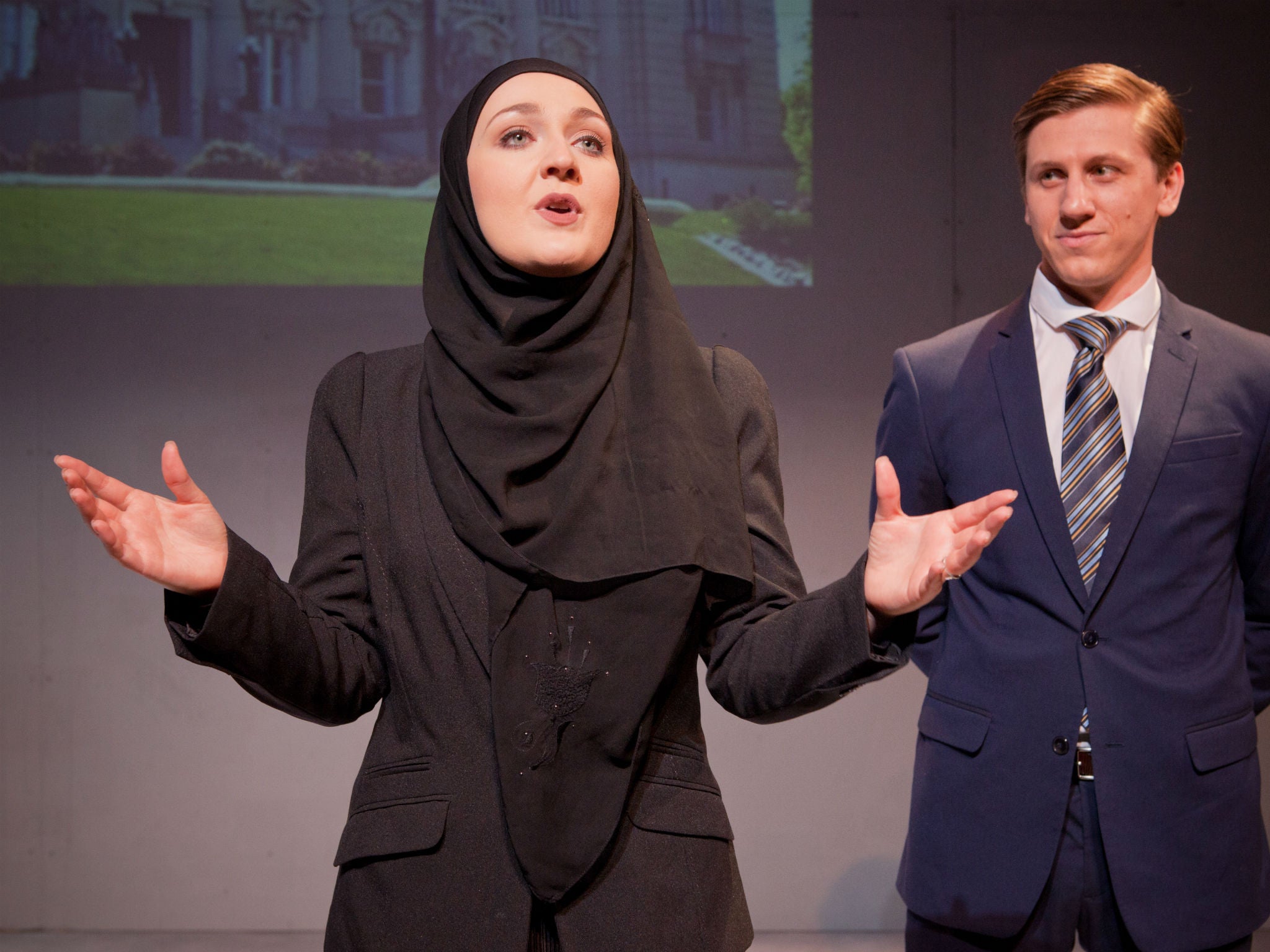Faceless, Park Theatre, London, review: A compelling play which refuses to reach for easy conclusions
Selina Fillinger's play sees a young white ISIS bride grilled in court by a Muslim prosecutor

Your support helps us to tell the story
From reproductive rights to climate change to Big Tech, The Independent is on the ground when the story is developing. Whether it's investigating the financials of Elon Musk's pro-Trump PAC or producing our latest documentary, 'The A Word', which shines a light on the American women fighting for reproductive rights, we know how important it is to parse out the facts from the messaging.
At such a critical moment in US history, we need reporters on the ground. Your donation allows us to keep sending journalists to speak to both sides of the story.
The Independent is trusted by Americans across the entire political spectrum. And unlike many other quality news outlets, we choose not to lock Americans out of our reporting and analysis with paywalls. We believe quality journalism should be available to everyone, paid for by those who can afford it.
Your support makes all the difference.The defendant and the prosecutor in a court case, two young Muslim women, each wearing a hijab, are compellingly examined in this play by the American dramatist, Selina Fillinger.
Susie Glenn (Fiona Gent) is a straight A student, from a white working class family, who has been accused of “conspiring to commit acts of terrorism”. Emotionally manipulated online by a member of ISIS, she was fully planning – until the FBI intervened – to go out to Syria to join him as his wife. She had converted to Islam in readiness.
The lead lawyer in the prosecution team is Scott Bader (Matt Mella), a politically ambitious, unashamedly sexist operator with a strong sense of strategy. He engages Claire Fathi (Paige Round), a young Harvard-educated lawyer of Iranian and French descent. Reared in Chicago and a practising Muslim, she has fought all her life against racial and religious prejudice.
At first, she’s irate at being almost forcibly recruited, conscious that Bader is mainly interested in the “optics”. Declining to be the “face of the prosecution”, she calls her boss’s bluff: “It’s not my face you’re interested in. It’s my hijab.”
But at the arraignment, Claire is incensed by the sight of Susie, who is still wearing this traditional headscarf. She’s fired with contempt for what she sees as the girl’s cultural tourism. She calls Susie a “Muslim Barbie”, an insult to real, right-thinking Muslims whose faith she misrepresents and besmirches. She worries that the girl will get off lightly because of her true-blue background and emotional vulnerability. Her police officer mother was killed recently in the line of duty; her dad is a first-responder. Determined that this will not happen, Claire pitches into the prosecution with a vengeance.
The play has bags of energy and bite and uncomfortable humour – qualities conveyed by the vibrant cast of this European premiere production, directed by Prav MJ. The stage is bare (the locations are indicated by slides) which means that the actors sock it out to us very directly. There’s a real reverberation to the arguments about radicalisation and religion and about whether exemplary or reformative punishment represents true American values.
Sallinger never pretends that what Susie did was not abhorrent and potentially catastrophic. Claire’s principles remain unbudged. But her attitude to her adversary becomes less harsh when she realises – it’s adroitly plotted – that she has twice overdone the attack in court.
Her cross-examination humiliates Susie’s father (both women have painful father issues) and she accuses Susie of being a coward – a charge perhaps inconsistent with the latter’s fight (despite public disapproval) for the freedom to remain Muslim. Perhaps her faith is not so touristic after all.
Gent has a tough job with the stricken, sensitive, stubborn defendant because, to my mind, the play’s main flaw is failing to dramatise sufficiently the power or genuineness of Susie’s sudden religious conversion. How has she had managed to dissociate it from the malign mentor whom she now repudiates? Round is vivid and vehement in her scathing certainties and then conflicted to just the right degree when her excessive zeal leads her to miscalculate and forces her to look inward.
It’s a play that asks difficult questions and refuses to reach for easy conclusions. Good, then, that it’s accompanied by a programme of post-show talks that look particularly stimulating.
Until 12 May (parktheatre.co.uk)
Join our commenting forum
Join thought-provoking conversations, follow other Independent readers and see their replies
Comments